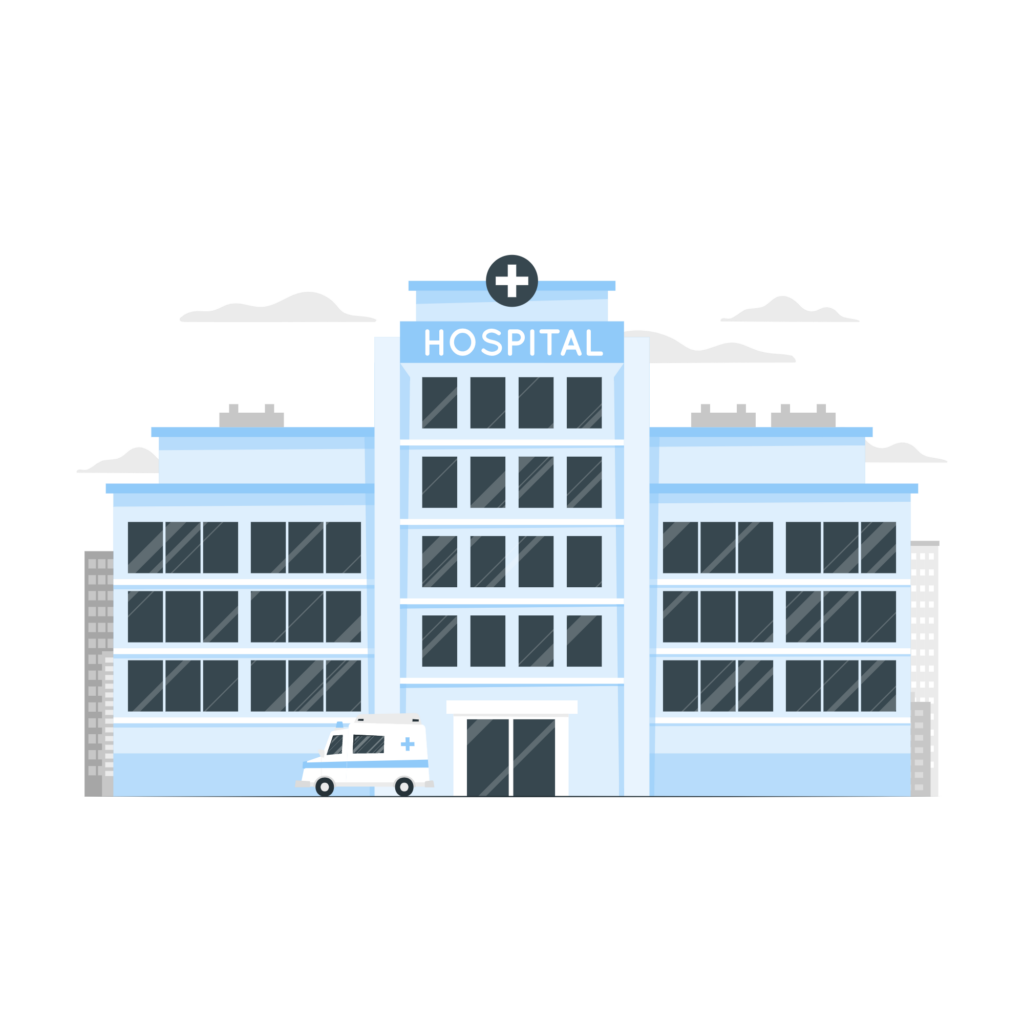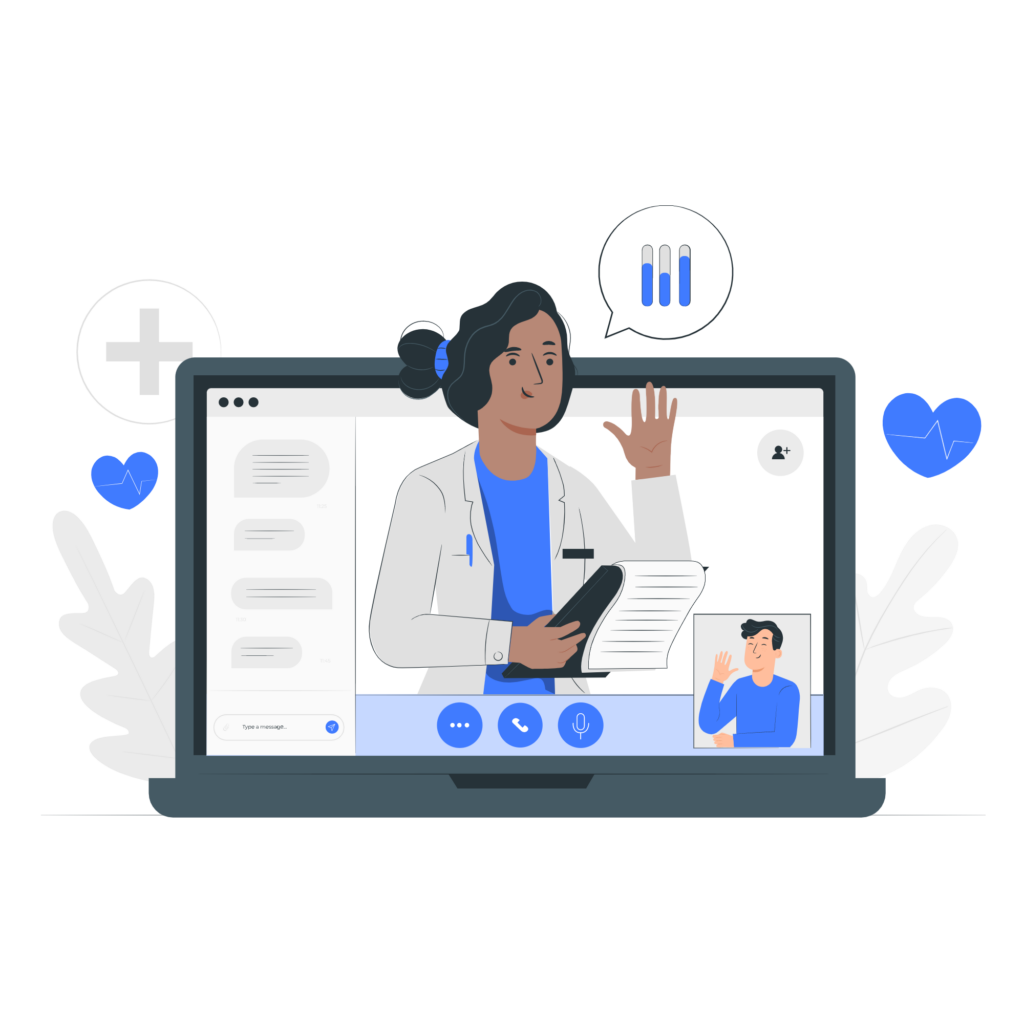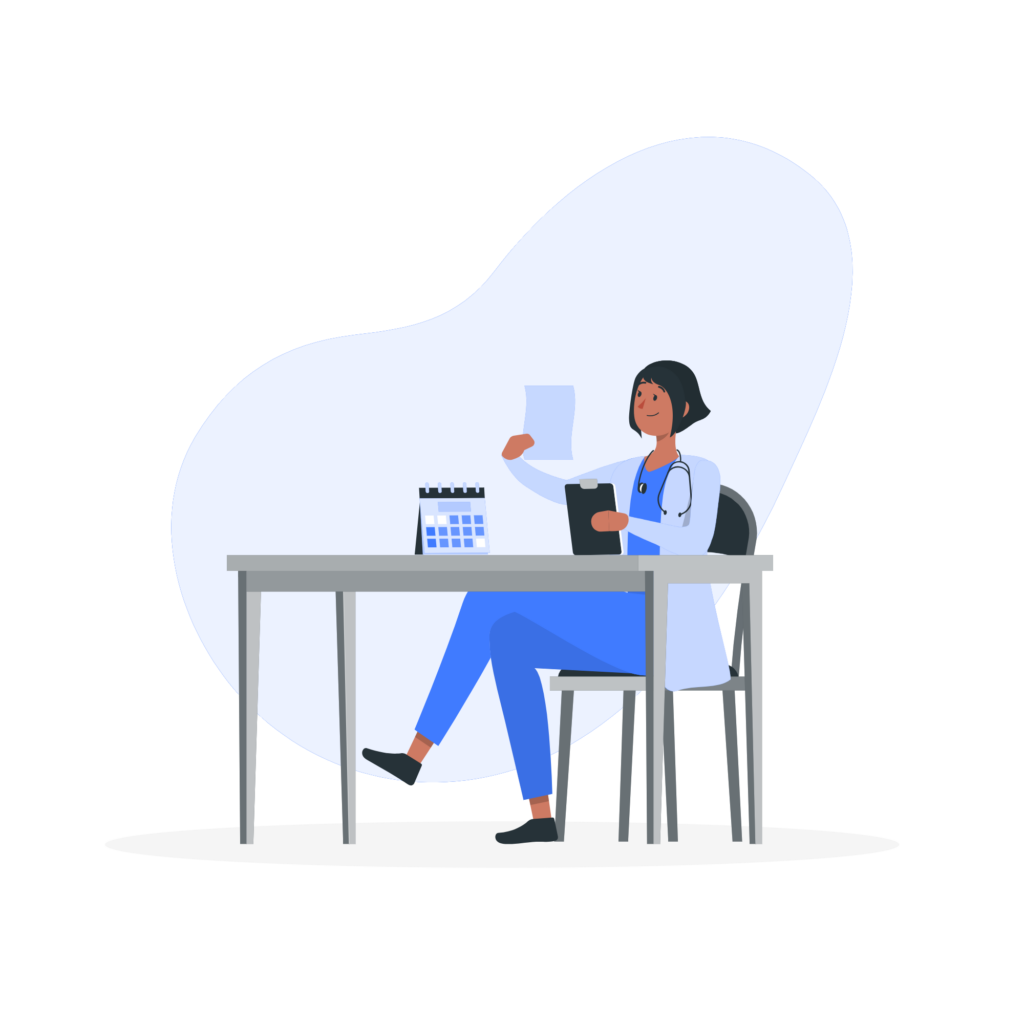New York and New Jersey have different medical licensing processes, and understanding the nuances between them is crucial for physicians, physician assistants, nurses, and other healthcare practitioners who want to practice in the Northeast. This comparison not only aids in making an informed decision but also streamlines the journey to becoming a licensed medical professional in these states.
In this comprehensive guide, we’ll delve deep into the intricacies of medical licensing in both New York and New Jersey. From educational prerequisites to telemedicine regulations, we aim to provide a roadmap tailored for medical professionals eager to make their mark in the Empire State or Garden State.
Why Compare New York and New Jersey? The Proximity, Potential, and Prestige
New York and New Jersey, two states separated by a mere river, share more than just a geographical boundary. Their close proximity presents a unique advantage for medical professionals, offering the flexibility to live in one state and practice in another, or even serve patients across both states. This geographical advantage is further amplified by the extensive transportation networks connecting the two, making commuting between them seamless.
But the allure of these states isn’t just their closeness. Both New York and New Jersey are home to some of the nation’s most prestigious medical hubs. New York boasts world-renowned institutions like the New York-Presbyterian Hospital, Mount Sinai Hospital, and the NYU Langone Medical Center. These facilities not only offer cutting-edge medical care but also serve as epicenters for medical research and innovation.
On the other side of the Hudson River, New Jersey holds its own with top-tier hospitals such as the Hackensack University Medical Center, Morristown Medical Center, and the Robert Wood Johnson University Hospital. These institutions have consistently been recognized for their excellence in various specialties, from cardiology to orthopedics.
For medical professionals, the choice between New York and New Jersey isn’t merely about picking a state; it’s about aligning with a region that’s a powerhouse in healthcare. By comparing the medical licensing processes of these two states, professionals can strategically position themselves to tap into the vast opportunities available, ensuring they’re not just practicing medicine, but also shaping the future of healthcare.

Licensing Authorities: An In-Depth Overview
Navigating the medical licensing process requires a clear understanding of the governing bodies that oversee and regulate the profession. Both New York and New Jersey have established authorities that ensure medical professionals meet the highest standards of practice.
New York: The New York State Education Department’s Office of the Professions
The Empire State entrusts the responsibility of licensing and regulating medical professionals to the New York State Education Department’s Office of the Professions. This office is the cornerstone for ensuring that the state’s medical practitioners adhere to the stringent standards set for patient care and safety.
New York Board of Medicine
- Phone: (518) 474-3817
- Fax: (518) 486-4846
- Website: New York Board of Medicine
For those specializing as physician assistants or in the nursing field, the Office of the Professions provides dedicated boards:
New Jersey: The New Jersey Division of Consumer Affairs State Board of Medical Examiners
In Garden State, the New Jersey Division of Consumer Affairs State Board of Medical Examiners takes the helm in overseeing the licensing and regulation of medical professionals. This board is pivotal in ensuring that practitioners in New Jersey uphold the highest standards of medical ethics and proficiency.
New Jersey State Board of Medical Examiners
- Phone: (609) 826-7100
- Fax: (609) 826-7117
- Website: New Jersey State Board of Medical Examiners
For nursing professionals, New Jersey offers a dedicated board: New Jersey State Board of Nursing: Website

Educational and Examination Requirements: New York vs. New Jersey
The path to obtaining a medical license in both New York and New Jersey is paved with rigorous educational and examination requirements. While both states aim to ensure the highest standards of medical practice, their specific requirements vary.
New York: Setting the Gold Standard in Medical Licensing
Accredited Medical School: Must be from an LCME (Liaison Committee on Medical Education) accredited institution or, for international graduates, a school listed in the World Directory of Medical Schools.
Postgraduate Training: ACGME-accredited program completion is mandatory. This ensures exposure to diverse medical scenarios and patient demographics. US graduates require 1 year of postgraduate training, while IMGs need 3 years of postgraduate training.
Licensing Exams: Passing USMLE, COMLEX-USA, or NBME. Note: Some institutions may prefer USMLE scores for residency placements. There’s no time limit on completing the USMLE or COMLEX.
New York State Physician Profile: This profile includes details like medical school attended, hospital affiliations, and any history of professional misconduct.
Background Checks: Comprehensive checks include criminal records, malpractice claims, and any disciplinary actions taken by other state medical boards. Challenges can arise if there’s a history of malpractice or criminal convictions.
Mandatory Courses: New York mandates courses on child abuse identification, infection control, and life support techniques. Failure to complete these can delay the licensing process.
Average Processing Time: 3-4 months, but can vary based on individual circumstances and the completeness of submitted documentation.
Additional Notes: New York accepts FCVS for domestic graduates. For International Medical Graduates (IMGs), FCVS is mandatory.
New Jersey: A Comprehensive Approach to Medical Licensing
Medical School Verification and Transcripts: Verification from an LCME-accredited institution or a recognized international institution.
Licensing Exams: USMLE, COMLEX, or NBME scores are accepted. It’s essential to be aware of the number of attempts and time limits: Candidates are allowed up to 5 attempts at USMLE Step 3. There’s a 7-year window to complete the USMLE.
Postgraduate Training: Verification from ACGME-accredited programs, detailing the duration and specialty. Both US and IMG graduates require 2 years of postgraduate training and must have signed a contract for a 3rd year if they graduated after July 1, 2003. For those who graduated before this date, the requirement is 1 year for US graduates and 3 years for IMGs.
Background Check: Includes criminal history, malpractice claims, and disciplinary actions from other states. A history of malpractice or any felony convictions can pose significant challenges.
State Medical Licenses: Verification ensures there’s no history of disciplinary actions in other states.
Professional Profiles: AMA or AOA profiles provide a comprehensive view of the candidate’s professional history and affiliations.
Verification of Past Records: A thorough check of the last 5 years ensures there’s no undisclosed malpractice or professional misconduct.
Average Processing Time: Typically 3-4 months, but discrepancies in documentation can lead to delays.
Understanding these requirements is pivotal for medical professionals aiming to practice in New York or New Jersey. By meeting these standards, they ensure their readiness to provide top-notch medical care to the residents of these states.

Application Process and Fees: A Comparison
Navigating the medical licensing process in both New York and New Jersey can be intricate. Both states have their unique sets of requirements and steps that medical professionals must follow.
Physician Licensing: New York vs. New Jersey
| Steps | New York | New Jersey |
| 1. Application Form | Licensure Application (Form 1) | Application form from the State Board of Medical Examiners |
| 2. Education | Graduate from an accredited medical school | Graduate from an accredited medical school |
| 3. Residency | Complete an accredited residency program | Complete an accredited residency program |
| 4. Examinations | Pass the USMLE, COMLEX-USA, or NBME | Pass the USMLE, COMLEX, or NBME |
| 5. Documentation | Provide evidence of education, certification, and work experience | Provide evidence of education, certification, and work experience |
| 6. Background Check | Required | Required |
| 7. Fees | $735 (Application: $135 + Three-year registration: $600) | Varies based on the specific license type |
| 8. Processing Time | Approximately 6 weeks or more | Approximately 3-4 months |
Physician Assistant Licensing: A Brief Overview
New York: To become a licensed physician assistant in New York, candidates must graduate from an accredited program and pass the Physician Assistant National Certifying Exam (PANCE). The total fee for the application is $115, which includes a $70 application fee and a $45 initial three-year registration fee. If applying for a limited permit, the fee is $105, which is non-refundable.
New Jersey: In New Jersey, aspiring physician assistants must graduate from an accredited program, pass the PANCE administered by the NCCPA, provide evidence of their education, certification, and work experience, and undergo a background check.

Telemedicine Regulations: New York vs. New Jersey
As the healthcare landscape evolves, telemedicine has emerged as a pivotal tool, enabling medical professionals to provide care remotely. Both New York and New Jersey have recognized its significance and have set forth regulations to ensure that telemedicine services uphold the same standards as in-person care.
New York
- Licensing: New York does not require a separate telemedicine license. However, every telehealth provider must be appropriately licensed or certified and maintain a current registration under the State Education Law. This encompasses a wide range of professionals, including physicians, nurse practitioners, and behavioral health experts.
- Scope of Practice: Telehealth providers in New York must adhere to the same standards of practice and conduct as they would for in-person care. This ensures that patients receive consistent and high-quality care, regardless of the mode of delivery.
New Jersey
- Licensing: Any healthcare professional delivering services via telehealth to a patient in New Jersey must possess a valid state license. This applies to both practitioners within New Jersey and those outside the state using telemedicine to provide healthcare services to New Jersey residents. The only exception is for out-of-state healthcare providers who exclusively offer consultation services to New Jersey licensees without directing patient care.
- Scope of Practice and Liability: Practitioners using telehealth in New Jersey must adhere to the state’s licensing board laws. They are also required to have liability coverage, ensuring that patients have recourse in the event of malpractice or other issues. This liability extends to both in-state and out-of-state practitioners providing telehealth services to New Jersey residents.
Continuing Medical Education (CME) Requirements: New York vs. New Jersey
The medical field is ever-evolving, and to ensure that healthcare professionals remain updated with the latest advancements, both New York and New Jersey have set forth Continuing Medical Education (CME) requirements. These requirements ensure that medical professionals continue to provide the highest quality of care to their patients.
New York
License Renewal: Medical licenses in NY must be renewed every three years. They expire at the end of the month before the licensee’s birthday. The renewal can be done via the State Education Department – Office of Professions website, using your license number and the last four digits of your SSN. The renewal fee stands at $600 for a three-year registration period.
CME Requirements: While New York does not have a fixed number of CME credit hours for physician license renewal, there are specific training mandates:
- Infection control and barrier precautions training every four years.
- At least two hours of training on identifying and reporting child abuse and maltreatment.
New Jersey
CME Requirements: 100 credits of CME every 2 years, with 40 credits being Category 1 and the remaining 60 being either Category 1 or Category 2.
Additional Training: 2 credits of End-of-Life-Care, 1 credit on opioid drug prescription (Category 1), and 6 credits of cultural competency training (for those who graduated before March 2, 2005).
Fees: A non-refundable application fee of $325, a one-time endorsement fee of $225, and a yearly registration fee of $290.
CME Requirements: 100 credits of CE every 2 years, split between 50 credits of Category 1 and 50 credits of either Category 1 or Category 2.
Additional Training: Similar to physicians, PAs also need 2 credits of End-of-Life-Care, 1 credit on opioid drug prescription (Category 1), and 6 credits of cultural competency training (for those who graduated before March 2, 2005).
Fees: The renewal fee stands at $150.
CME Requirements: 30 contact hours relevant to their practice area every 2 years. The CE must be approved by an organization recognized by the Board of Nursing or accredited by the ANCC.
Additional Training: 1 contact hour on prescription opioid drugs and 6 contact hours of cultural competency training (for those who graduated before March 2, 2005).
Fees: The renewal fee is $120.
Controlled Dangerous Substances (CDS) Registration: This registration should be renewed every 3 years, either 60 days before or 30 days after the certificate’s expiration date. The fee for a 3-year renewal is $120.
Both states emphasize the importance of continuous learning for medical professionals.

Special Considerations
Navigating the medical licensing landscape comes with its unique set of challenges, which can differ from one state to another. These challenges often manifest in the form of special provisions, such as temporary licenses, special permits, or waivers tailored to address specific situations or needs.
New York Medical Licensure by Endorsement
Definition: Licensure by endorsement allows medical professionals to obtain a New York State medical license without taking the standard state licensing examination. Instead, it recognizes licensure by examination from another jurisdiction.
To qualify, applicants must have
- Completed a medical education program that aligns with the standards set by the New York State Board for Medicine.
- Undertaken at least one year of postgraduate training in an accredited hospital or medical facility.
- A valid, unrestricted license to practice medicine in another state or country.
- Engaged in satisfactory professional practice for a minimum of two years post-licensure.
While New York doesn’t offer medical license reciprocity with other states, those already licensed elsewhere might be eligible for licensure by endorsement in New York.
Limited Medical License in New York
Before applying for a limited permit in New York, ensure you’ve submitted your licensure application and fee. Additionally, all required documentation should be on its way to the State Education Department.
Fill out the Form 5A – Application for Limited Permit and submit it with the necessary fee.
Temporary Medical Licenses in New Jersey
New Jersey offers temporary licenses for physicians licensed in other states or countries who are looking to work in a New Jersey healthcare facility. To apply, submit an application form, the required fee, and proof of your current license and medical education to the State Board of Medical Examiners. These licenses are valid for a year and can be renewed once for a valid reason.
Professionals with a temporary license must practice under the supervision of a licensed physician in New Jersey and adhere to all relevant laws and regulations.
New Jersey Waivers
In specific scenarios, New Jersey might grant waivers for certain licensing requirements. This is especially true if the applicant showcases equivalent qualifications or experience. Such waivers can be granted during public health emergencies or when there’s a shortage of qualified professionals. To request a waiver, contact the State Board of Medical Examiners or the relevant professional board and provide the necessary documentation.
Each waiver is considered on its merits and might come with certain conditions or limitations.
It’s crucial to stay updated by regularly checking the official websites of the respective state medical boards for the latest and most comprehensive details on these special considerations.
Medical Licensing Challenges and Tips
The journey to medical licensure, while rewarding, is often fraught with challenges. However, with the right guidance and a proactive approach, these hurdles can be effectively navigated.
- Documentation Delays: Gathering all the necessary documents, especially from foreign institutions, can be time-consuming.
- Understanding State-Specific Requirements: Each state has its unique set of prerequisites, and understanding them can be daunting.
- Cost Implications: The licensing process can be expensive, with various fees at different stages.
- Time Constraints: The entire process, from application to approval, can be lengthy, especially if there are any discrepancies or missing information.

6 Helpful Tips to Speed Up the Medical Licensing Process
- Credentials Verification Service: While not mandatory, leveraging the Credentials Verification Service can significantly simplify the application process. The CGFNS’ Credential Verification Service for NY, for instance, ensures a thorough evaluation of foreign academic and professional nursing credentials. At a cost of $360, CGFNS can issue a report to the State Education Department within weeks, depending on the complexity of your file and response times from educational institutions and licensing authorities.
- Expedited Processing: If you’re in a hurry due to an imminent job offer or urgent patient care needs, consider requesting expedited processing. Ensure you provide a valid reason and supporting documentation, such as a job offer letter or a letter from a medical institution. However, remember that not all expedited requests are approved, and there might be additional fees.
- Stay Updated: Regulations and provisions can change. For instance, the NJ Division of Consumer Affairs – State Board of Medical Examiners discontinued the Temporary Emergency Reciprocity Licensure Program for most Group 2 healthcare practitioners as of August 1, 2022. However, alternative pathways like the IMLC or eNLC might offer expedited licensure.
- Temporary Licenses for Recent Graduates: In New Jersey, recent graduates from specific medical programs, including nursing and physician assistant, can obtain a temporary license without passing the licensure examination through the Temporary Emergency Graduate Licensure Program.
- Stay Organized: Keep all your documents in order, maintain a checklist, and track your application’s progress. This will help you address any issues promptly.
- Seek Guidance: If you’re unsure about any aspect of the licensing process, don’t hesitate to reach out to the respective state medical boards or seek advice from professionals who’ve been through the process.
Remember, while the path to licensure can be challenging, it’s a testament to the rigorous standards set to ensure the best patient care. With determination and the right resources, you can successfully navigate this journey.
Conclusion
The pursuit of a medical license in New York and New Jersey, while demanding, is a testament to the commitment and dedication of healthcare professionals aiming to serve these states. Both New York and New Jersey, with their rich medical heritage and world-class institutions, offer unparalleled opportunities for those in the medical field. By understanding the intricacies of the licensing processes in these states, professionals can make informed decisions, ensuring they are well-positioned to provide the best care to their patients. As the medical landscape continues to evolve, staying informed and proactive will be key to navigating the challenges and reaping the rewards of practicing medicine in the Empire State and Garden State.
FAQs about New York and New Jersey Medical License Comparison
-
Which state is easier for medical licensing – New York or New Jersey?
Both states have rigorous standards to ensure the highest quality of patient care. The “easiness” can vary based on individual circumstances, qualifications, and specific needs. -
Can I practice in New Jersey with a New York medical license (and vice versa)?
No, each state requires its own medical license. However, some provisions like licensure by endorsement might make the process smoother for those already licensed in another state. -
How long does the medical licensing process typically take?
On average, the process can take 3-4 months. However, this can vary based on individual circumstances, completeness of documentation, and specific state requirements. -
Are there any shortcuts or expedited processes for medical licensing?
Both states offer expedited processes under specific circumstances, such as an imminent job offer. However, not all expedited requests are approved, and additional fees might apply.



